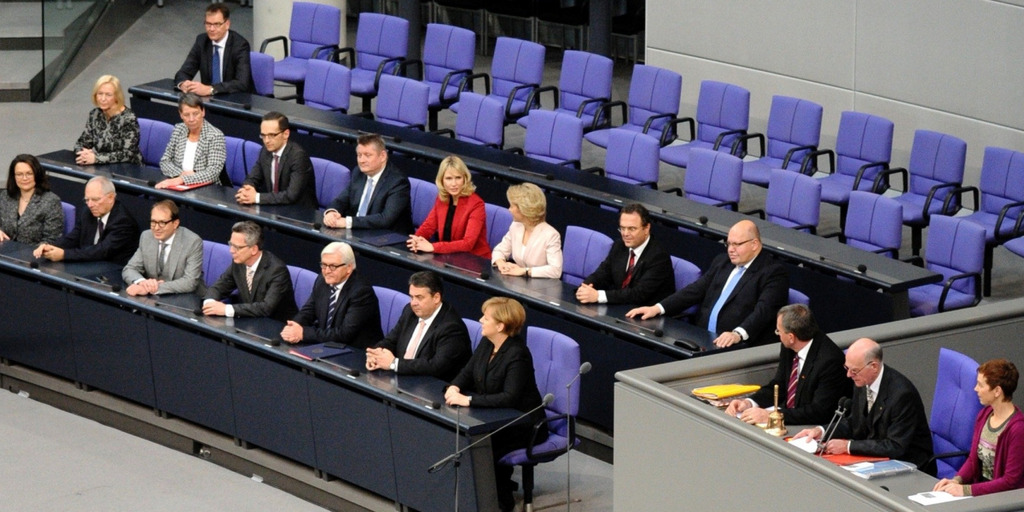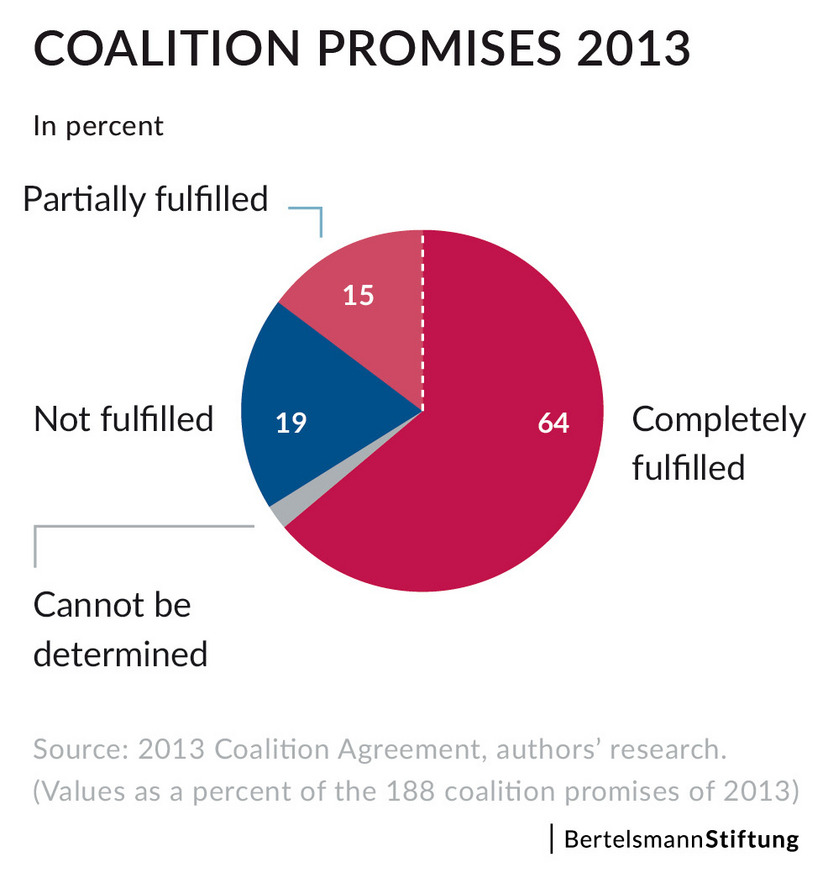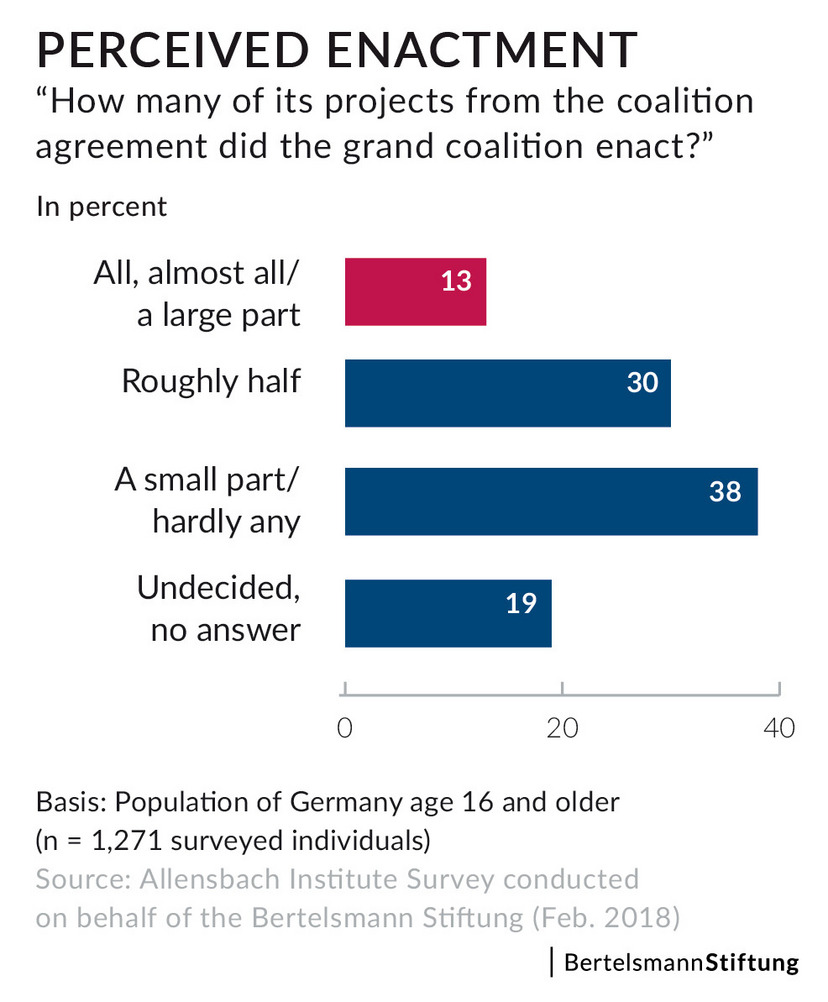In most cases, the previous grand coalition in Germany kept most of its promises. A detailed analysis of the 2013 coalition agreement conducted on our behalf shows that the parties in the coalition government for the 2013-2017 legislative period agreed on 188 concrete measures and goals. Of these, 120 promises were completely fulfilled and an additional 28 were at least partially fulfilled. It thereby enacted almost two-thirds (64 percent) of its projects completely and a further 15 percent at least partially. The government enacted exactly two-thirds of all the kept promises already in the first half of the legislative period.
"In the previous legislative period, the grand coalition kept the promises it had made to voters in the coalition agreement to a very large extent and, for the most part, even completely," says Robert Verhkamp, our democracy expect, who wrote the study together with Theres Matthieß from the WZB Berlin Social Science Center.






